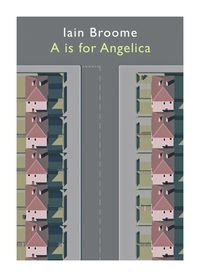Today I am really pleased to feature an interview with author Joanne Phillips. Joanne's latest novel is Cupid's Way.
Welcome Joanne, and thank you for agreeing to answer my questions!
Cupid's Way is a feel-good romantic comedy about a woman called Evie Stone, who finds herself in the middle of a battle to save a Victorian terrace: Cupid's Way. Her grandparents live there, along with a host of colourful characters, but Dynamite Construction are threatening to demolish the site in the name of development. Evie begins to fall for charismatic Michael Andrews at an eco conference, not realizing he is in fact the CEO of Dynamite Construction ...
I know you've started a series of mystery novels too, I'm looking forward to reading the first one when I get chance. How do you decide what you want to write about next?
I have a notebook full of ideas, some are pretty detailed novel outlines and others just brief sketches, but I need to feel fired up about an idea to begin writing. A novel, even if you write quickly, takes a big chunk out of your life, and you have to love the characters and feel totally immersed in the plot to live with it for so long.
Do you plan extensively in advance when you write, in terms of plot and character, or do you have just an outline/main idea and then see where the words take you?
I do both, depending on the type of book. For a mystery, plotting is essential. The latest Flora Lively mystery was carefully plotted, scene by scene, before I started writing. You don't have to do it this way, of course, but if you don't it definitely means more re-writing and editing later to make sure you've laid a trail of clues and made the final denouncement totally credible. But my usual way of writing is to take an idea or a character and just begin. When I get to chapter 3 or 4, if I'm happy and certain I'm heading in the right direction, I might stop and jot down some ideas about where I want it to go. But plotting too much can suck all the joy out of it, for sure.
How long do you spend writing a novel from start to finish, and does it vary depending on the subject matter?
It does vary. Now I'm on my fifth novel, I usually spend about 6 months writing and editing, but often the idea will have been working itself out in my head for far longer, or will be based on notes and character sketches I've developed over time. Writing a novel for me doesn't only include sitting down at my desk and typing out the words - much of it goes on in my head while I'm doing other things.
Do you find writing addictive - is it hard to stop once you get going?
It is addictive, and I would write all day, every day if I could!
I love your site offering advice on writing and publishing from your own experiences. I read that you have done different roles prior to writing, but did you always have that itch to write?
I've always written, no matter what job or role I've had. I can still remember the feel of my school exercise books: red, blue or green covers with lined paper inside. I still think in stories all the time, and my characters have conversations with each other in my head! I think the big moment came for me when I realised that you need to take your dreams seriously, and give yourself every chance to achieve what you want, which for me was to have my work in front of readers. I'm enjoying sharing my journey on my blog and I'll always continue to do that too.
Many thanks for being my guest on the blog today, Joanne!
You can visit Joanne's website here, and find her on twitter @joannegphillips and visit her amazon page here.



(2).jpg)




